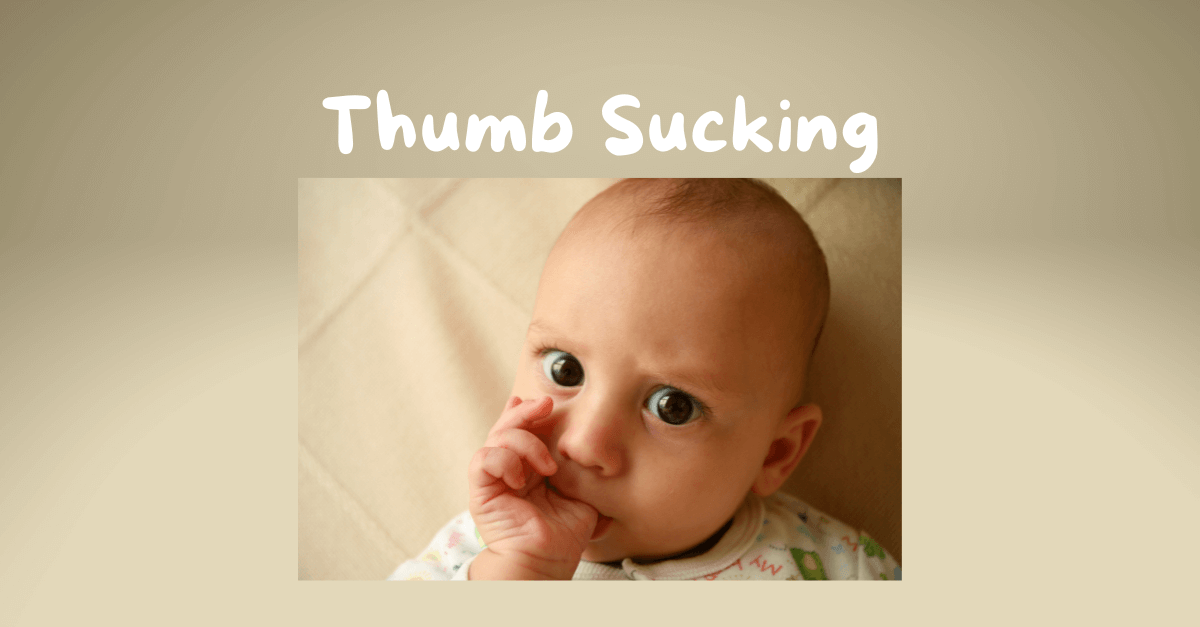Why do babies suck their thumbs?
Your baby tends to suck their thumbs or fingers for a number of reasons. Firstly, thumb sucking is a comforting behavior that helps to relieve stress and anxiety, as well as provides a sense of security. It can also be an instinctive reflex that helps your baby to self-soothe. Lastly, thumb sucking can be a way for your baby to satisfy their natural urge to suck, which is necessary in order for them to be able to breastfeed or drink from a bottle.
When does thumb sucking become a problem?
Many kids will stop thumb sucking on their own between the ages of 2-4. Generally, dentists and the American Academy of Pediatrics recommend that your child stop sucking their thumb around the age of 5 years old. But it doesn’t really become a major problem until they get their adult teeth. Then the habit may affect your child’s bite and the shape of the roof of their mouth (palate).
As kids get older, other children may make fun of them for thumb sucking, so peer pressure alone may make them stop. At the least, they will probably stop doing it in a public setting and may only resort to thumb sucking when falling asleep.
8 ways to stop thumb sucking after the age of 4
- Talk to them about their habit of thumb sucking. Explain what it can do to their teeth and also that others may make fun of them for it.
- Have your dentist talk to them. Sometimes that doctor in a white lab coat is more convincing than mom or dad.
- Positive reinforcement: Praise your child when they don’t suck their thumb.
- Provide non-food related rewards for not engaging in the habit.
- If they are doing it because it helps in times of stress, give them cuddles instead. Or provide a soft cuddly stuffed animal or blanket to hold.
- Wear a reminder: Put a bandaid on their thumb to remind them. It feels and tastes weird.
- Make it taste bad: Apply a bitter-tasting, but safe, substance to your child’s thumb to discourage the habit. Apple cider vinegar can work for some kids.
- Have a gentle reminder that you can use just between you both. Example. You see them sucking on their thumb, saying their name then pulling on your ear lob. They know that is the signal that you’re reminding them about not sucking their thumb.
- Ignore it. Some kids will outgrow it with no intervention from you. Some kids may do it for attention, even if negative, as it’s better than none at all.
Have Patience
Getting upset with them doesn’t accomplish anything other than getting them more stressed about it. Don’t make fun of them for doing it. That could backfire on you and make them need the comfort even more.
Just remember, for every horror story you hear about how thumb sucking caused thousands of dollars in orthodontics in the teen years, there are stories of kids who sucked their thumbs well past the recommended age to stop (or still do) and nothing happened to them. Or the kids who never sucked their thumbs to begin with, and had all kinds of teeth and mouth problems. Some things are just genetic. These are all “best recommendations,” not hard or fast rules that apply to everyone.

Consultation: We offer a free consultation for your child or grandchild. If you have a concern and want us to evaluate your child, in regards to sucking their thumb and how it could be affecting their mouth shape or bite, give us a call to set up an appointment.

